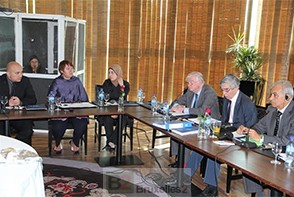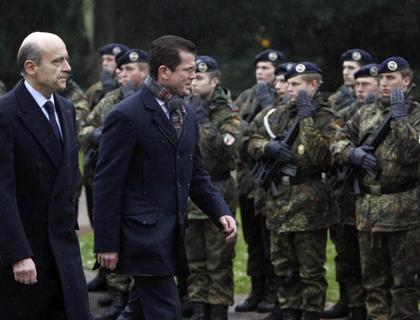Switzerland is reluctant to engage against pirates, the solution: pay…
(B2) After a moment of enthusiasm (see a first post in december), the Swiss reality seems to have taken over.
Questions questions that had already arisen almost a year ago, when the European operation EUNAVFOR Atalanta was preparing, arise, further reinforced by the Swiss specificity of neutrality: Is it really appropriate to send military commandos off Somalia against piracy? What will their mandate be? Their rules of engagement? And the financial cost of the operation? What about neutrality? etc Result: a lot of hesitation. And even... a clear opposition.
Some political difficulties. The Foreign Policy Commission of the National Council (the lower house of the Swiss parliament) thus issued a negative vote (12 votes against 6), against any military intervention intended to protect the Swiss fleet. It's clear.... As a result, the Federal Council (the government) which was to decide last week postponed the decision until Wednesday. In the meantime, a difficulty related specifically to internal politics has arisen. The new Minister of Defense is Üli Maurer, former leader of the UDC party, rather known for his "reluctance" to accept foreign engagements by the Swiss army (the populist Democratic Center Union is an ardent defender of traditional Switzerland, neutral, reluctant to open to Europe and refusing military engagement outside the borders, as summarized by this stand). Certainly the Minister of Defense is not the only decision maker on this subject, explained to me Swiss colleagues. He simply has a say. The decisions of the Federal Council are decided jointly by all the members. And, on this subject, it is more the Ministry of Foreign Affairs which is the leader. But that won't make the decision any easier.
Another option. The idea of hiring Swiss commandos to protect merchant ships flying the Swiss flag (there are about 35 of them) has thus turned into the provision of commandos to protect World Food Program (WFP) ships, more suited to a certain idea of neutrality and humanitarian commitment. And if this limited commitment fell through, another alternative would reappear, considered by several Swiss and European officials. Switzerland would contribute financially to the European operation. In exchange for protection boats flying white cross on red background. Cost of the invoice for Switzerland: between 8 and 9 million euros.
This contribution seems logical to me in a way. This is, moreover, one of the main original features of the EuNAVFOR Atalanta operation, one of whose objectives is to directly protect the economic and strategic interests of European countries - as successively recalled by the ministers German et Spanish of Defense - ... and others. European military forces thus ensure, on behalf of other non-European countries (which fly the flag outside the EU), protection which avoids them having to resort to other means which have a cost (bypassing Africa, more men on board, immobilization of the vessel and hostage taking, etc.), and save the insurance companies additional costs. It is normal to have, in a way, a "return on investment" or failing that, a "compensation" for the costs thus incurred.
(NGV)

